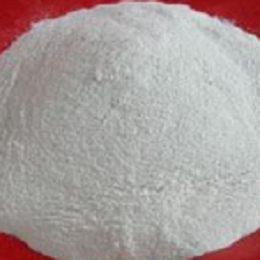Background and overview[1]
As an enteric polymer, hypromellose phthalate is widely known. It is a polymer with a total of three substituents, and is made by using methyl (-CH3) and hydroxypropyl groups. It is produced by replacing the hydrogen atoms of the hydroxyl groups on the cellulose skeleton with two substituents (-C3H6OH) to obtain an ether structure, and using carboxyl benzoyl (COC6H4COOH) to obtain an ester structure. Hypromellose phthalate is used in a wide range of applications such as in coatings, drug release control and by hot melt extrusion of hypromellose phthalate with poorly water soluble drugs or Applications in spray drying to produce solid dispersions. Hot melt extrusion eliminates the use of solvents, allowing it to be applied to drugs that are unstable in water. Therefore, hot melt extrusion has received safety concerns due to not having to recycle solvent, reducing environmental concerns, saving energy in the solvent recycling process, and improving operator safety.

Application
Hydroxypropyl methylcellulose phthalate is an enteric pharmaceutical excipient with excellent performance. It was included in the Japanese and US Pharmacopeias in 1981 and 1983 respectively. It is a new enteric-coated pharmaceutical excipient with excellent performance. Film coating materials have the characteristics of good film-forming properties, fast dissolution, and stable physical and chemical properties. This enteric coating material is a product of esterification with hydroxypropyl methylcellulose as the skeleton and phthalic anhydride. . It is insoluble in water and gastric juice and can quickly expand and dissolve in the upper part of the small intestine.
Preparation[1]
Hypromellose phthalate was prepared as follows: 7.0 kg of hydroxypropoxymethylcellulose phthalate with a hydroxypropoxy substitution degree of 9.0 wt% per glucose unit and a methoxy substitution degree of 28.9 wt% per glucose unit was prepared. Hydroxypropyl methylcellulose was added to 11.2kg of glacial acetic acid in a 50L kneader with a biaxial mixer to dissolve, then 5.8kg of phthalic anhydride, 109g of sodium chlorate and 3.0kg of sodium acetate and react at 85°C for 4.5 hours. 12.9 kg of water were added to the reaction mixture and stirred. Then, water in an amount 21 times the weight of HPMC was gradually added to the reaction solution to precipitate crude hypromellose phthalate. The precipitate was filtered by using a horizontal filter plate type filter device and washed with water.
The obtained hypromellose phthalate was mixed with water to obtain a suspension with a temperature of 7°C and a hypromellose phthalate concentration of 6% by weight. The average particle size of the hypromellose phthalate suspended particles in the obtained suspension was 507 μm, which particle size was determined as a weight from the ratio of suspended particles passing through 9 sieves with different mesh openings Measured by integrating the particle size distribution with an integrated value equal to 50% of the particle size. Use a centrifugal decanter (decanter-type continuous centrifugal separator machine, model Z18, manufactured by TANABEWILLTECINC.) to deliquidate (solid-liquid separation) the hypromellose phthalate suspension by centrifugation at 2500G . After deliquification, the average particle size of hypromellose phthalate suspended particles was 195 μm, and the reduction rate was 62%. After deliquification, the liquid content of the hypromellose phthalate cake was 59.8% by weight.
Main reference materials
[1] New synthesis method and process optimization of hypromellose phthalate
[2] CN201710758835.7 Hypromellose phthalate and its production method

 微信扫一扫打赏
微信扫一扫打赏

